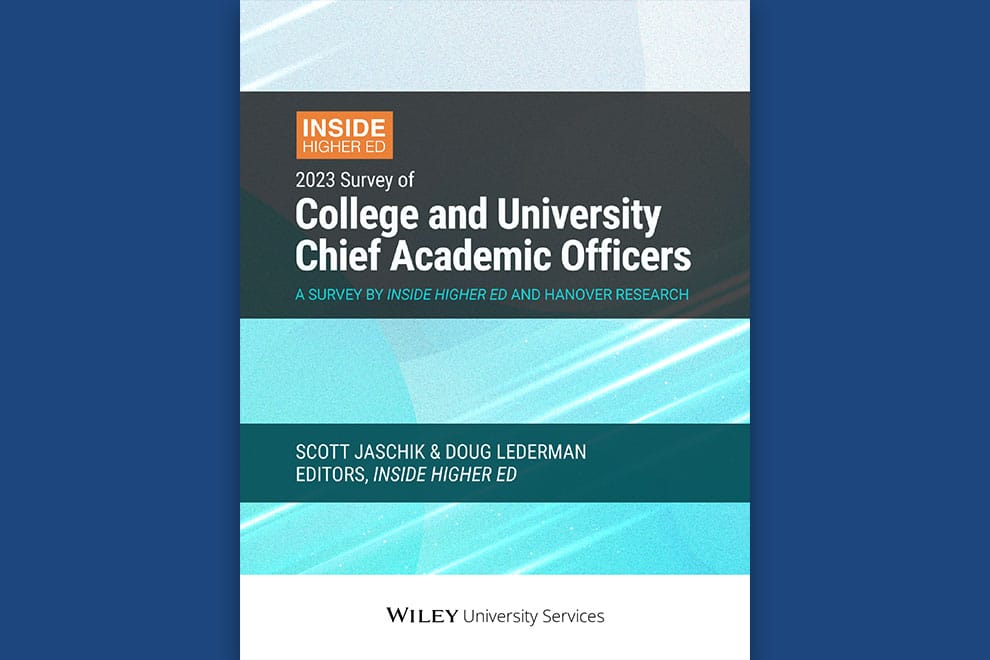Why are more learners vanishing from classes, and how can you reverse this trend? Get ideas for busting academic ghosting in this article.
Digital life makes it easier to meet new friends and colleagues worldwide. On the flip side, it’s also easy to ghost these connections. In fact, a YouGov study found that 30% of respondents had ended relationships without saying why.
Higher ed isn’t immune to ghosting. Our data shows that, of the learners who withdraw from programs, about 1 in 4 do not give a reason.
These learners abruptly stop attending class.
They ignore messages from advisors and faculty.
They vanish.
The latest data from the National Student Clearinghouse makes academic ghosting more concerning. It shows that first-year persistence has fallen at an “unprecedented” rate. And when learners drop out unexpectedly, advisors never get to offer guidance that could put them back on track.
But you don’t have to let academic ghosting take you by surprise. Let’s jump into predictive strategies and tools that can help you spot and support learners at risk of ghosting online programs.
Clues that a learner might ghost their program
Many high-risk learners keep their challenges to themselves. As a result, their professors and advisors never realize something is amiss, making it more shocking when learners ghost the class.
But certain traits indicate a learner may have one foot out the door. We’ve organized those traits into five archetypes to help you understand their challenges and motivations for ghosting programs.
Archetype 1. Star Spirit
Look at a Star Spirit’s grades, and you would expect them to soar through their program to graduation. But for these perfectionists, good isn’t good enough. If their performance doesn’t reach their sky-high standard, it can rock their self-image.
- What to watch for — external stressors
Family issues or health setbacks can cause a Star Spirit’s performance to fizzle. They may also get frustrated after receiving a lackluster grade on an assignment.
- How to help — make connections
Your faculty and advisors should be ready to offer support when a Star Spirit’s grades dip. Frame these occasions as opportunities to build resilience, not reasons to let their confidence dim.
Archetype 2. Apathetic Apparition
These learners join courses reluctantly, possibly to meet a parent’s expectation or a work requirement. So, they lack interest from the start and assume no one will notice if they ditch class.
- What to watch for — low enthusiasm
These learners just want the class to be over instead of developing knowledge on the course topic.
- How to help — make it manageable
Apathetic Apparitions may welcome short assignments that they can complete quickly. This format also lets your faculty check in with the learner to spot signs they may ghost the class.
If Apathetic Apparitions miss a deadline, it’s crucial for your faculty and advisors to engage them quickly to see if they’re okay. You could also use positive reinforcement or a gamified system to spark their interest in learning.
Archetype 3. Slow Shadow
These learners work hard but may not be timely with completing assignments. If they don’t finish one task on time, they’ll worry about catching up.
- What to watch for — missed deadlines
Falling behind on assignments or slipping attendance could foreshadow that they’ll ghost class altogether.
- How to help — give them time
If you notice a learner needs more time, giving them a bad grade won’t help. But offering more time to finish their work might. They may also accept invitations to their instructor’s office hours to ask for an extension in private, along with chances to receive one-on-one guidance from advisors.
When talking with these learners, your faculty and advisors shouldn’t ask, “Why is your work late?” That question could make the learner think something is “wrong” with them. Instead, your faculty and advisors should ask about the progress they’ve made and encourage them to finish.
Archetype 4. Squeaky Specter
Ghosting class isn’t the only thing that comes naturally to Squeaky Specters — complaining does, too. This negativity haunts their classmates and becomes contagious, spoiling the learning experience for everyone.
- What to watch for — never-ending discontent
A learner who regularly expresses dissatisfaction may believe your faculty and advisors don’t hear — or care to address — their concerns.
- How to help — show you’re listening and that you care
Many Squeaky Specters just want validation. If your instructors and advisors acknowledge complaints with empathy, the learner may stop disrupting class and advising appointments. They may also lose their motivation to ghost their program.
Frustrations that materialize in class may originate with a separate, more profound issue. Your faculty could help these learners address those issues by inviting them to talk one-on-one during office hours or connecting them with support services your university provides.
Archetype 5. Feisty Phantasm
These learners appear to take nothing seriously, including assignments. They also enjoy distracting classes with anecdotes that lead to dead-ends instead of somewhere productive. If they receive no attention (or the wrong kind, such as getting labeled a class clown), they may ghost the class.
- What to watch for — disruption
These learners want to be the center of attention. When they find a topic unrelatable, they lose interest and put themselves in the spotlight.
- How to help — form personal connections
These learners need help relating to a course’s content to stay productive. Your faculty could encourage them to think about — and briefly share — how lectures apply to their experiences. When assignments involve student presentations, Feisty Phantasms may disrupt their peers less if they get to go first.
Understanding the five archetypes can help your faculty and advisors anticipate academic ghosting. By getting to the root cause of this challenge, you can foster growth for learners while improving your attrition prevention efforts.
Offer ghost-proof learning experiences
If academic ghosting is on the rise at your university, our student retention services could help. We offer flexible support to enable your learners to stay committed to their academic programs — online and on campus. Plus, learn how to build a positive digital culture with guidance from the Digital Wellness Institute.
About the Contributor
Amy Blankson is the Co-Founder of the Digital Wellness Institute and bestselling author of The Future of Happiness. A graduate of Harvard and the Yale School of Management, she’s the only person to receive a Point of Light award from two U.S. presidents. She is also a member of the UN Global Happiness Council, a Fellow of the World Innovation Organization, a featured professor in Oprah’s happiness e-course, and a regular contributor to Forbes. Her current work focuses on how to cultivate happiness and well-being in the digital era.

















